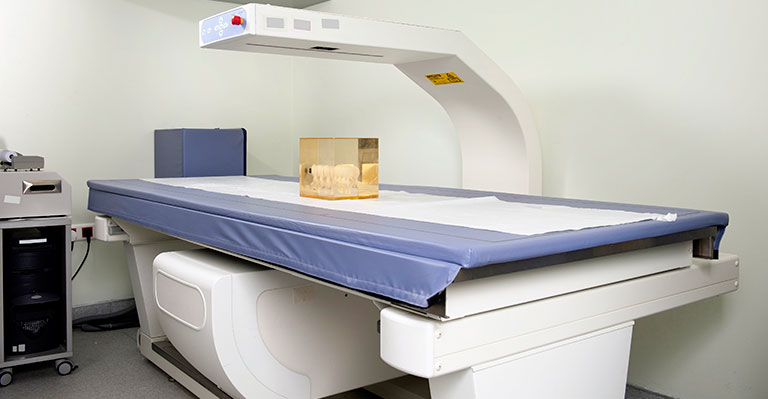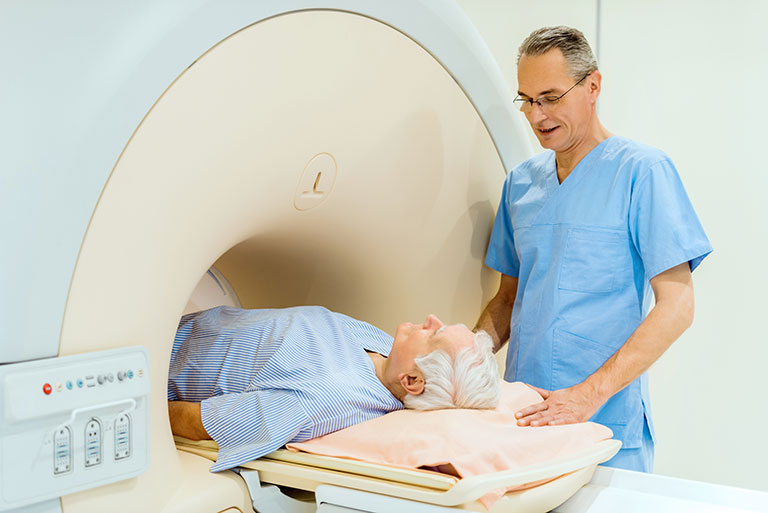Nuclear Medicine Scans
This tests involve an injection of a special dye that lights up in different parts of the body helping us evaluate various conditions.
After injection of the dye in a vein, a person typically lays on a special type of bed that detects the dye as it moves around the body. Radiation from this test is very low.
The two common nuclear medicine tests are a “bone scan” and a “kidney scan”.

Whole Body Bone Scan
- Test that lets us see if there are abnormal areas in the bones of the body
- We use it to check if there is spread of cancer, particularly prostate cancer to the bones of the body.
DEXA Bone Scan
- This type of scan helps us evaluate the density of bone (how strong your bones are) in patients afflicted with osteoporosis, osteopenia.
- The density of bones is important to know in patients who are on chronic prostate cancer hormone shots and those patients with chronic low testosterone levels who are at a higher risk for weaker bones.
Renal Scan
- This is a very useful test that allows us to detect how well each kidney functions, which kidney works better, and how well each kidney drains urine.
- We use this test to help us evaluate patients with kidney tumors as well as ureteral obstruction.
